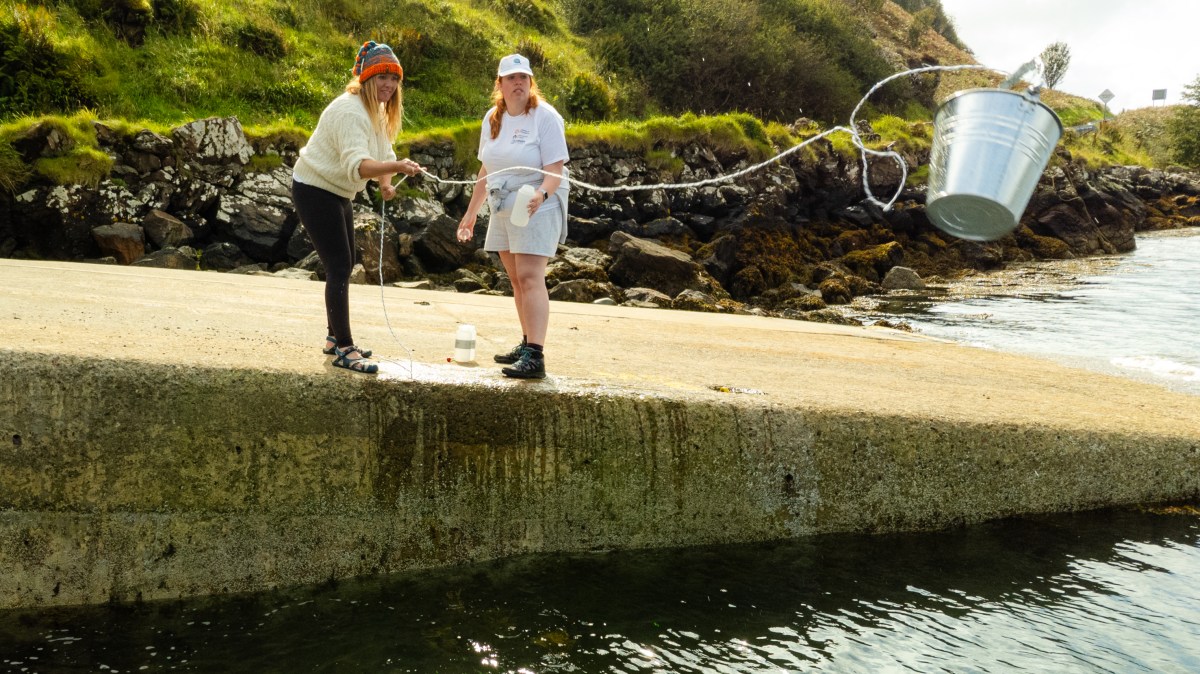Science
Scientists Launch Mobile Initiative to Map Global Microplastics

Scientists are calling for public assistance in mapping microplastics worldwide through a new mobile initiative. This project, spearheaded by a former forensic scientist, leverages mobile phone technology to enable individuals to collect and report data on microplastics in their local environments.
This groundbreaking approach aims to create a comprehensive global map of microplastics, which have increasingly become a significant environmental concern. The initiative invites participants to utilize their smartphones to capture images and data related to microplastic pollution. By employing a straightforward process, this project seeks to gather substantial information on the presence and distribution of microplastics across various ecosystems.
Citizen Science Takes Center Stage
The movement highlights the role of citizen science in environmental research. Participants can download a dedicated app that guides them in identifying and reporting microplastic samples. The app is designed to be user-friendly, allowing individuals with little to no scientific background to contribute effectively. As people engage with their surroundings, they can identify microplastics in bodies of water, soil, and even urban areas.
According to initial estimates, microplastics are present in over 90% of the world’s oceans, posing risks to marine life and human health. The initiative aims to enhance understanding of how these particles are distributed and how they affect ecosystems. By gathering data from diverse geographical locations, the project aspires to present a clearer picture of the global microplastic crisis.
The Role of Technology in Environmental Research
The former forensic scientist leading this initiative emphasizes the importance of technology in combating environmental challenges. With advances in mobile phone capabilities, it is now possible for everyday citizens to contribute to scientific research. This democratization of science allows for a broader collection of data, which can enhance the credibility and scope of environmental studies.
Organizations concerned with environmental preservation are backing this effort, recognizing the value of aggregated data from multiple sources. Participants are encouraged to share their findings on an online platform, fostering a sense of community and shared purpose in tackling microplastic pollution.
The project is set to launch in late 2023 and aims to engage thousands of participants worldwide. By involving the public in research efforts, scientists hope to raise awareness about the impact of microplastics and promote sustainable practices.
As the global community grapples with the implications of plastic pollution, initiatives like this provide a pathway for meaningful action. With the support of citizen scientists, researchers can gain insights that could lead to effective solutions and policies aimed at reducing microplastic waste. The future of environmental science increasingly relies on collaboration between experts and the public to tackle pressing global issues.
-

 Entertainment2 weeks ago
Entertainment2 weeks agoAndrew Pierce Confirms Departure from ITV’s Good Morning Britain
-

 Health4 months ago
Health4 months agoFiona Phillips’ Husband Shares Heartfelt Update on Her Alzheimer’s Journey
-

 Health4 months ago
Health4 months agoNeurologist Warns Excessive Use of Supplements Can Harm Brain
-

 Science2 months ago
Science2 months agoBrian Cox Addresses Claims of Alien Probe in 3I/ATLAS Discovery
-

 Science2 months ago
Science2 months agoNASA Investigates Unusual Comet 3I/ATLAS; New Findings Emerge
-

 Entertainment1 week ago
Entertainment1 week agoGogglebox Star Helena Worthington Announces Break After Loss
-

 Science2 months ago
Science2 months agoScientists Examine 3I/ATLAS: Alien Artifact or Cosmic Oddity?
-

 Entertainment2 months ago
Entertainment2 months agoLewis Cope Addresses Accusations of Dance Training Advantage
-

 Entertainment1 month ago
Entertainment1 month agoTess Daly Honoured with MBE, Announces Departure from Strictly
-

 Entertainment5 months ago
Entertainment5 months agoKerry Katona Discusses Future Baby Plans and Brian McFadden’s Wedding
-

 Science2 months ago
Science2 months agoNASA Investigates Speedy Object 3I/ATLAS, Sparking Speculation
-

 Entertainment5 months ago
Entertainment5 months agoEmmerdale Faces Tension as Dylan and April’s Lives Hang in the Balance









